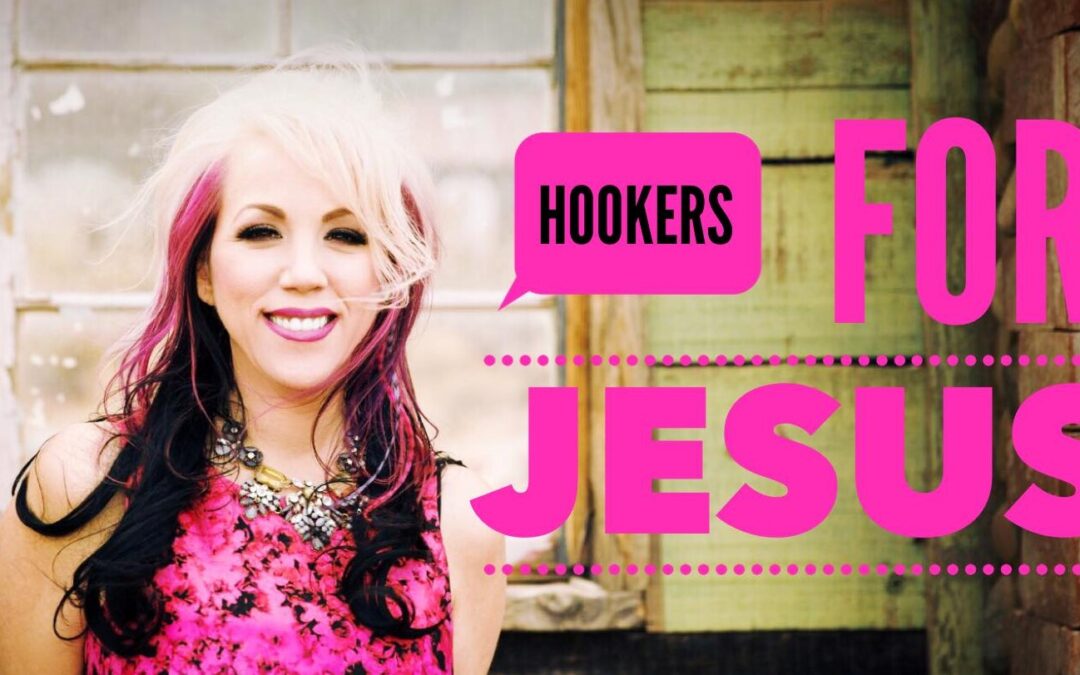A U.S. Justice Department anti-human trafficking grant program is facing internal complaints, after two nonprofits were denied funding in favor of two less established groups whose applications were not recommended by career DOJ officials.
The awarding of more than $1 million total to the two groups, Hookers for Jesus in Nevada and the Lincoln Tubman Foundation in South Carolina, has triggered a whistleblower complaint filed by the Justice Department’s employee union to the department’s Inspector General.
An internal department memo seen by Reuters shows that as of September 12, two long-established nonprofits – the Catholic Charities of the Diocese of Palm Beach and Chicanos Por La Causa of Phoenix – were originally on the list of recommended grant winners after receiving high marks from outside contractors hired to review applications.
The annual grants help nonprofits and local governments aid human trafficking victims.
Later that month, those two organizations were replaced as recommended recipients by Hookers for Jesus and the Lincoln Tubman Foundation, which both received lower rankings from the outside reviewers.
The reason, a September 23 memo says, was an effort to “distribute funding across as many states as possible.”
The change was ultimately approved by Katharine Sullivan, head of the Office of Justice Programs, OJP, which awards the grants.
Sullivan defended the process as proper.
“Our funding decisions are based on a merit-based review system,” she said.
Chicanos Por La Causa has opposed the Trump administration’s immigration policies.
The head of Catholic Charities in Palm Beach has participated in past Democratic National Committees as a delegate or standing committee member.
Both groups said they filed strong applications and intended to continue competing for grants.
Each, Reuters found, was ranked as a Tier 1 applicant, the highest level, after scrutiny by outside reviewers.
Hookers for Jesus and the Lincoln Tubman Foundation were ranked in Tier 2, one level lower.
To help select grant recipients, the Justice Department contracts with outside experts called “peer reviewers” who evaluate and score applicants.
The reviewers’ identities were not listed next to their comments, so Reuters couldn’t contact them.
Career department officials then receive a blind copy of the average weighted scores and divide them into tiers, with the top scores being closer to 100.
They review the applications, scores and reviewers’ comments to help inform their recommendations, which get the final sign-off from OJP leadership.
DOJ staffers recommended the two Tier 1 groups.
The subsequent decision to bypass two higher-scoring groups in favor of those with lower scores deviates from past practices, said several Department of Justice veterans.
“Tier 1 generally is your default. They all get funded unless there is some kind of legitimate reason not to fund them,” said Jean Bruggeman, a former DOJ Office for the Victims of Crime fellow who is now executive director of the Freedom Network USA, a coalition aiding trafficking victims.
Hookers for Jesus, which received $530,190 over three years, is run by a born-again Christian trafficking survivor who has lobbied against decriminalizing prostitution, a policy position aligning with many in the Republican Party.
Hookers for Jesus operates a safe house for female adult trafficking victims that, in 2010 and in 2018, maintained a policy of requiring guests to participate in religious activities, internal program manuals obtained by Reuters through public records requests show.
The safe house’s manuals had rules that included a ban on reading “secular magazines with articles, pictures, etc. that portray worldly views/advice on living, sex, clothing, makeup tips.”
Other rules limited everything from who victims could call to banning them from bringing their purses with them on weekly shopping trips. Rule-breakers could be penalized by being assigned chores such as washing windows.
Hookers for Jesus founder Annie Lobert denied that her organization requires safe house residents to attend services at her church.
“We are not going to discriminate toward anyone,” she said. “But,” she added, “we are Christian. And there is an understanding before they come in here that we are Christian.”
If the policies described in the 2018 manuals continue after the federal grant money is dispersed, they would likely violate anti-discrimination laws that prohibit using federal funding to engage in explicitly religious activities, some lawyers said.
“The fact the federal government is funding this is problematic,” said Dallas Hammer, an attorney specializing in discrimination law. “The decision-makers here could be walking the federal government right into a clear violation of the First Amendment,” which protects freedom of religion.
In its grant application, Hookers for Jesus did not discuss its religious focus in detail, and the department did not have access to its program manuals before the award was announced.
This is not the first time Hookers for Jesus has received federal grant money.
In 2017, Nevada announced it was giving Lobert’s group nearly $300,000 through the federal Victims of Crime Act. In her grant application at the time, Lobert said church participation was voluntary.
The funding was not renewed in 2018 after the state obtained Hookers for Jesus program manuals saying it was “mandatory” for guests of the group’s shelter, Destiny House, to attend services and volunteer at a specific church.
Its staff training manual said homosexuality is immoral and abusing drugs for pleasure is “witchcraft.” Reuters obtained the manuals through a public records request.
One Nevada grant reviewer in 2018 questioned whether Hookers for Jesus treated victims like “prisoners,” while another observed the program seemed too controlling and expressed concern it forced victims to attend Bible study, the grant review documents show.
“We felt their policies were not victim-focused or evidence based,” said Kelsey McCann-Navarro, whose office in Nevada’s Division of Child and Family Services decided not to renew the funding.
Reviewers evaluating its 2019 federal application said Hookers for Jesus staff had little experience handling forms of human trafficking involving minors, men and foreign nationals.
